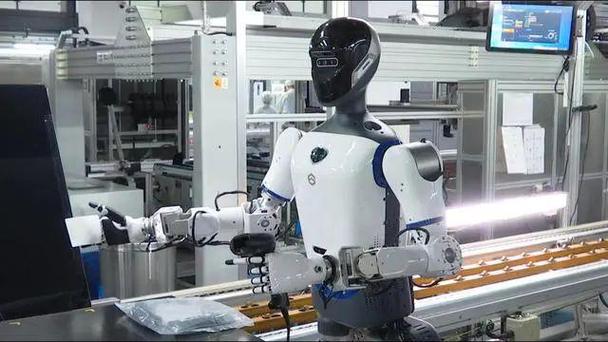
In the showroom of a Shanghai Technology Expo, a Android takes a few small steps that, while still unable to jump on its own, show how far the Chinese robot industry has come. At first glance, it may seem clumsy and less perfect than a robot from a sci-fi movie, but the device can pick up objects and“Talk” in sign language. The developers see its future in the homes of the elderly — providing companionship and much-needed help.
With sino-us relations strained and technology competition intensifying, the Chinese are looking to high-end manufacturing, with Android developers springing up. Industry insiders say the android’s ability to use tools skillfully and respond to human emotions could help fill the gap in pension services caused by an ageing and shrinking workforce.
As a new height of global technology competition, the Chinese android industry entered an explosive period last year, with the size of the industry increasing to 3.91 billion yuan, up 85.7 percent year on year, and the 2026 is expected to exceed 20 billion yuan. Robots are taking on much of the work that is not possible because of a shrinking labor force and are becoming important new engines of economic growth. Not only can android be an efficient helper for households, but they can also help businesses reduce costs and produce more standardised goods.
China’s Ministry of Industry and Information Technology issued an ambitious blueprint document in November last year (“Guidance on the development of Android Innovation”– Editor’s Note) , by 2025, the Chinese will be mass-producing android with artificial intelligence “Brains, cerebellums and limbs”.
Qiu Yufeng, an industry entrepreneur, believes the value of Android is not limited to solving skills shortages in a population ageing China, it also has the potential to bring about major changes in care for the elderly, ‘humanoid robots can interact with older people and provide emotional support and companionship and other assistance. By contrast, human carers are expensive and potentially abusive. ‘
In the past decade, Chinese patent Android have gone from lagging behind to following and even leading. The country is close to its target of producing large-scale Android by 2025, as the industry booms. “As companies continue to learn and integrate resources, China may complete a complete supply chain within a few years, but time is short,” Qiu says